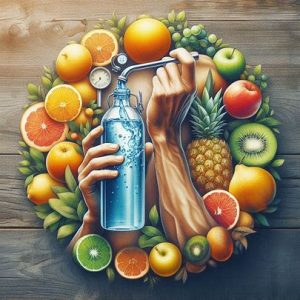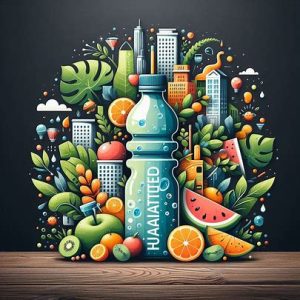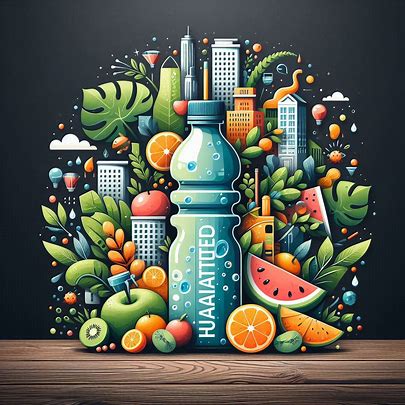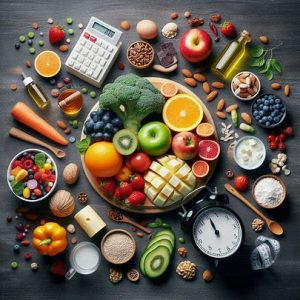Introduction
Water is the essence of life, making up about 60% of the human body and playing a critical role in nearly every bodily function. From regulating body temperature to aiding digestion and supporting cognitive health, staying hydrated is fundamental to well-being. Despite its importance, many people overlook proper hydration, leading to fatigue, poor concentration, and even serious health issues. This article explores the science behind hydration, its benefits, practical ways to stay hydrated, and emerging trends in hydration practices. Whether you’re an athlete, a busy professional, or simply someone looking to improve your health, understanding hydration can transform your daily life.
Why Hydration Matters
The Science of Hydration
Water is essential for maintaining bodily functions. It serves as a medium for chemical reactions, lubricates joints, transports nutrients, and removes waste through urine and sweat. Dehydration, even at mild levels (1-2% loss of body water), can impair physical and mental performance. For instance, a study published in the Journal of the American College of Nutrition found that mild dehydration can reduce cognitive function, including memory and attention, by up to 20%.
The body loses water daily through breathing, sweating, and urination, so replenishing it is crucial. The average adult needs about 2.7–3.7 liters of water daily, depending on factors like age, activity level, and climate, according to the National Academy of Medicine. This includes water from beverages and food, as fruits and vegetables like watermelon and cucumbers contribute significantly to hydration.
Health Benefits of Staying Hydrated
Proper hydration offers a range of benefits:
- Physical Performance: Hydration enhances muscle function and endurance. Athletes who maintain optimal hydration levels can exercise longer and recover faster.
- Cognitive Health: Adequate water intake supports focus, memory, and mood. A 2023 study in Nutrients showed that hydrated individuals performed better on complex tasks.
- Digestive Health: Water aids digestion by helping break down food and preventing constipation.
- Skin Health: Hydration keeps skin elastic and reduces the appearance of dryness or wrinkles.
- Temperature Regulation: Water helps regulate body temperature through sweating, especially in hot climates or during exercise.
Neglecting hydration can lead to headaches, fatigue, and, in severe cases, heatstroke or kidney problems. For example, chronic dehydration is linked to a higher risk of kidney stones, as concentrated urine allows minerals to crystallize.
How to Stay Hydrated
Know Your Hydration Needs
Hydration needs vary based on individual factors. Men typically require more water (3.7 liters) than women (2.7 liters), but activity level, climate, and diet also play a role. For instance, someone living in a hot, humid region like Dubai may need more water than someone in a temperate climate. Pregnant or breastfeeding women and athletes also have higher requirements.
A simple way to gauge hydration is by checking urine color. Pale yellow indicates proper hydration, while dark yellow or amber suggests dehydration. However, certain foods, supplements, or medications can affect urine color, so it’s not a foolproof method.
Practical Tips for Daily Hydration
- Carry a Reusable Water Bottle: A 2024 survey by the International Bottled Water Association found that 68% of people drink more water when they carry a reusable bottle. Opt for a BPA-free bottle with measurement markers to track intake.
- Infuse Your Water: Add fruits like lemon, cucumber, or berries to enhance flavor without added sugars. Infused water is a popular trend, with social media platforms like Instagram showcasing creative recipes.
- Eat Water-Rich Foods: Include foods like watermelon (92% water), cucumbers (95% water), and oranges in your diet. Soups and broths are also excellent sources.
- Set Reminders: Use smartphone apps or smart water bottles that sync with your phone to remind you to drink. Brands like HidrateSpark, popular in 2025, glow or send notifications when it’s time to hydrate.
- Balance Electrolytes: During intense exercise or hot weather, replenish electrolytes like sodium and potassium with sports drinks or natural options like coconut water. However, avoid sugary drinks, as they can lead to weight gain.

Hydration for Specific Groups
- Athletes: Athletes lose significant water through sweat. The American College of Sports Medicine recommends drinking 16–20 ounces of water 2–3 hours before exercise and 8–10 ounces every 15 minutes during activity.
- Children: Kids need encouragement to drink water, as they may not recognize thirst. Fun, colorful water bottles can make hydration appealing.
- Older Adults: Aging reduces thirst sensation, increasing dehydration risk. Caregivers should ensure regular water intake, especially for those with mobility issues.
Emerging Trends in Hydration
Smart Hydration Technology
In 2025, hydration technology is booming. Smart water bottles like HidrateSpark and Ozmo track intake and sync with fitness apps, helping users meet daily goals. Wearable devices, such as Fitbit’s latest models, now include hydration tracking features that estimate water loss based on activity and sweat rate. These tools are particularly popular among fitness enthusiasts and tech-savvy individuals.
Functional Beverages
The beverage industry is innovating with “functional waters” infused with vitamins, collagen, or adaptogens like ashwagandha for stress relief. Brands like Vitamin Well and Recess have gained traction, with sales rising 15% in 2024, according to Beverage Industry News. However, experts caution that these drinks should complement, not replace, plain water due to added costs and ingredients.
Sustainable Hydration
Sustainability is a growing focus. Reusable bottles made from recycled materials and water filtration systems like LifeStraw are trending as eco-conscious choices. Public campaigns, such as the #RefillRevolution on X, encourage using refill stations to reduce plastic waste.

Common Hydration Myths
- Myth: You Must Drink 8 Glasses of Water Daily: While a good guideline, individual needs vary. Listen to your body and adjust based on activity and climate.
- Myth: Coffee Dehydrates You: Moderate coffee consumption doesn’t significantly dehydrate, as it contributes to fluid intake.
- Myth: Thirst Is Always a Reliable Indicator: By the time you feel thirsty, you may already be mildly dehydrated, especially in older adults.
Real-World Applications
Hydration impacts daily life in tangible ways. For example, a 2024 case study of a corporate wellness program in New York found that employees who received free water bottles and hydration reminders reported 25% fewer sick days and higher productivity. Schools implementing “water-first” policies, where water is offered before sugary drinks, have seen improved student focus and reduced obesity rates.
In sports, teams like the U.S. Women’s Soccer Team emphasize hydration strategies, using personalized plans to optimize performance during matches. These real-world examples highlight hydration’s role in health and success.
Conclusion
Staying hydrated is more than just drinking water—it’s a cornerstone of health that enhances physical performance, mental clarity, and overall vitality. By understanding your hydration needs, adopting practical habits, and exploring modern tools like smart bottles, you can make hydration a seamless part of your routine. As trends like functional beverages and sustainable practices shape the future, prioritizing hydration remains a timeless strategy for a healthier life. Start small—carry a water bottle, sip regularly, and listen to your body. Your health will thank you




